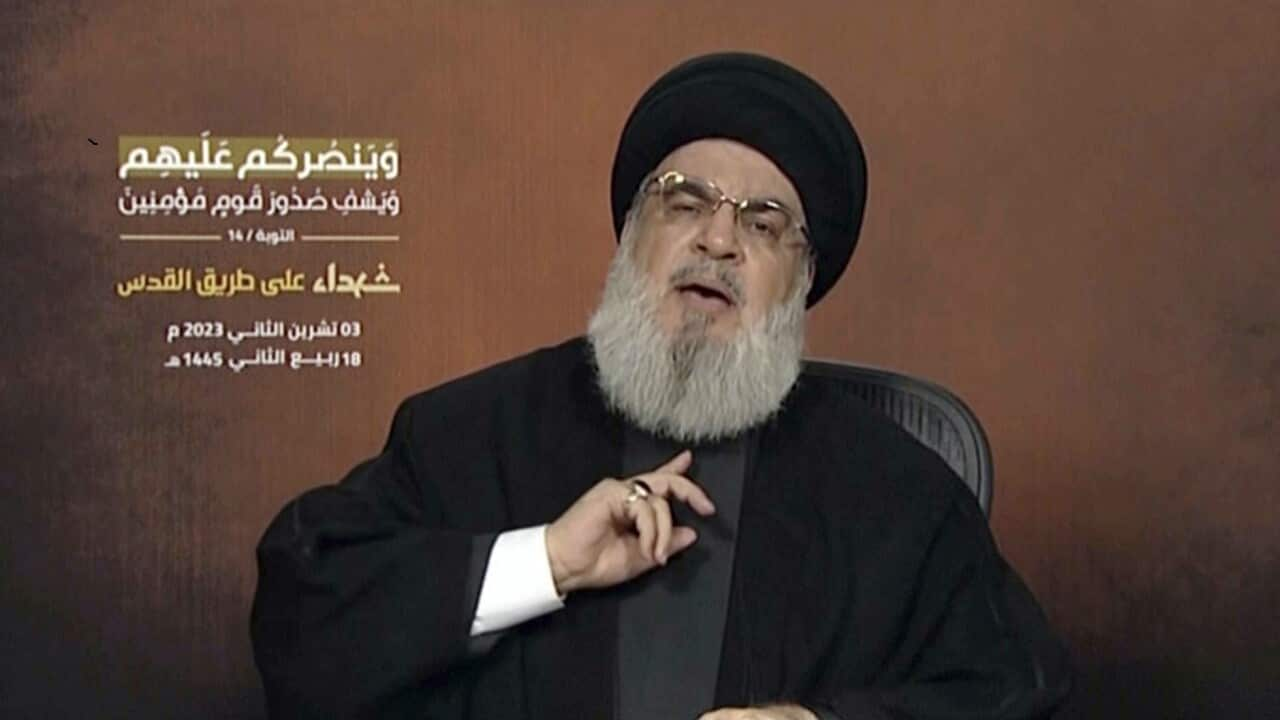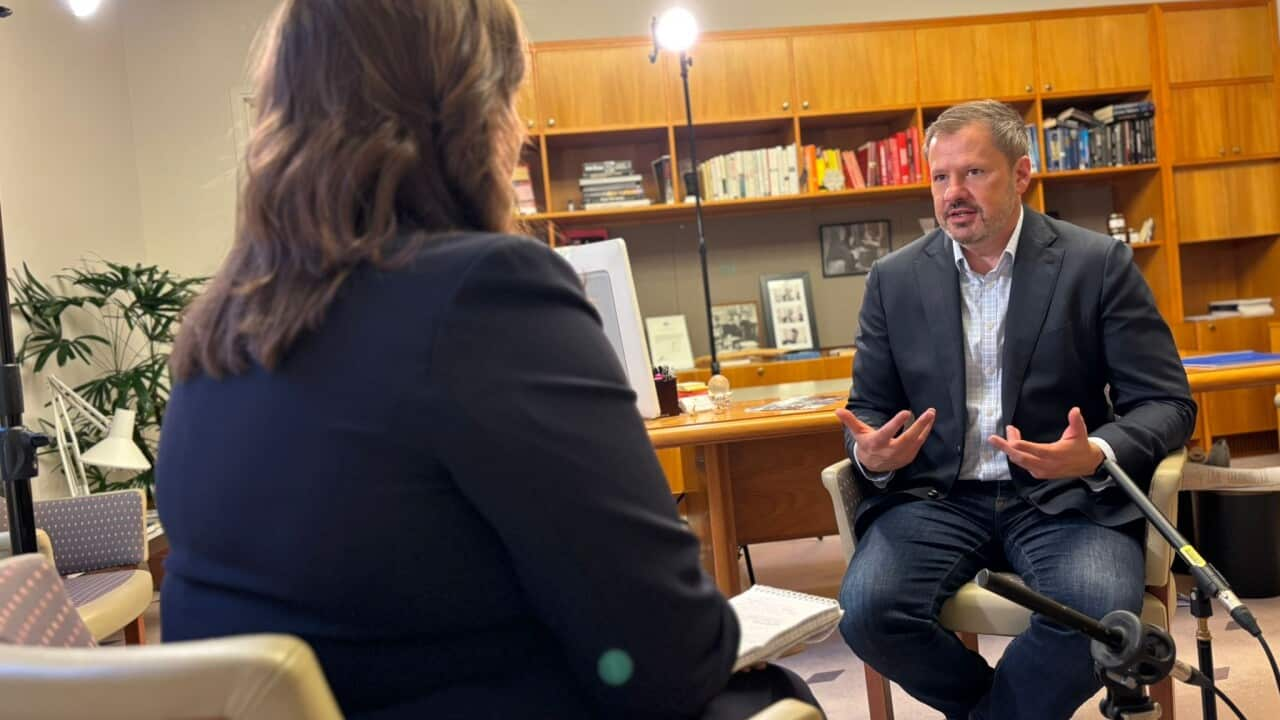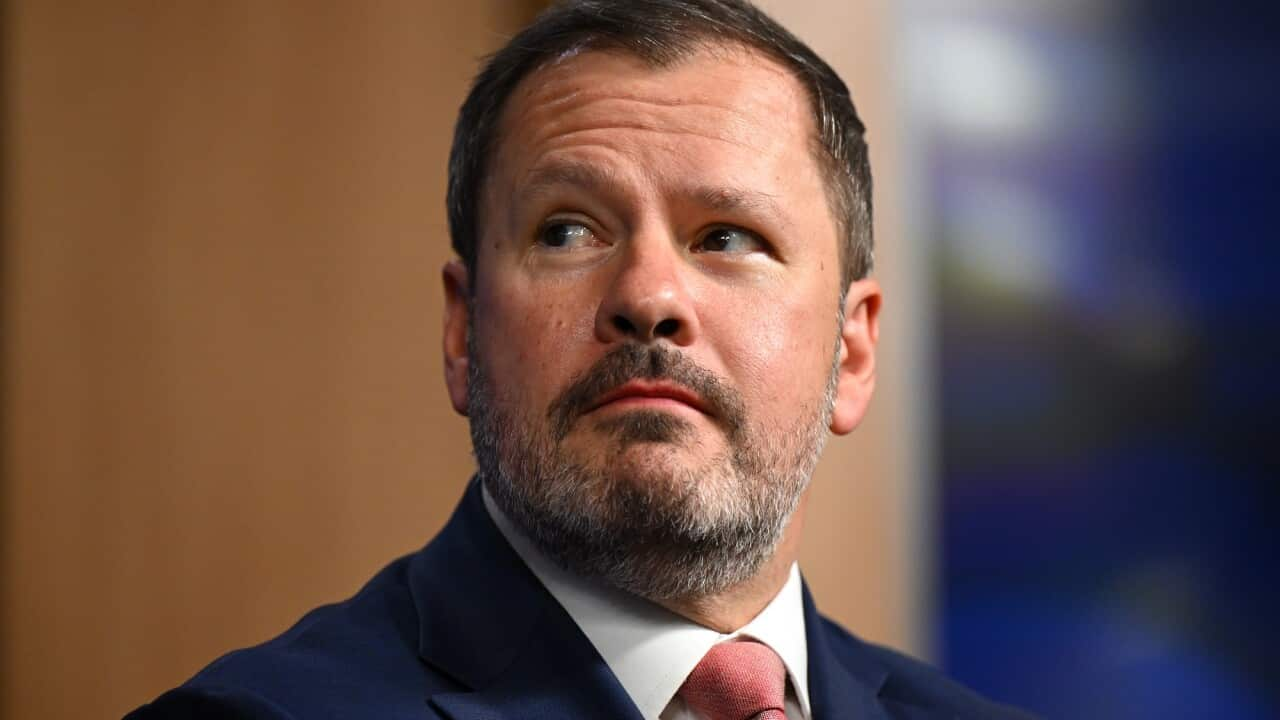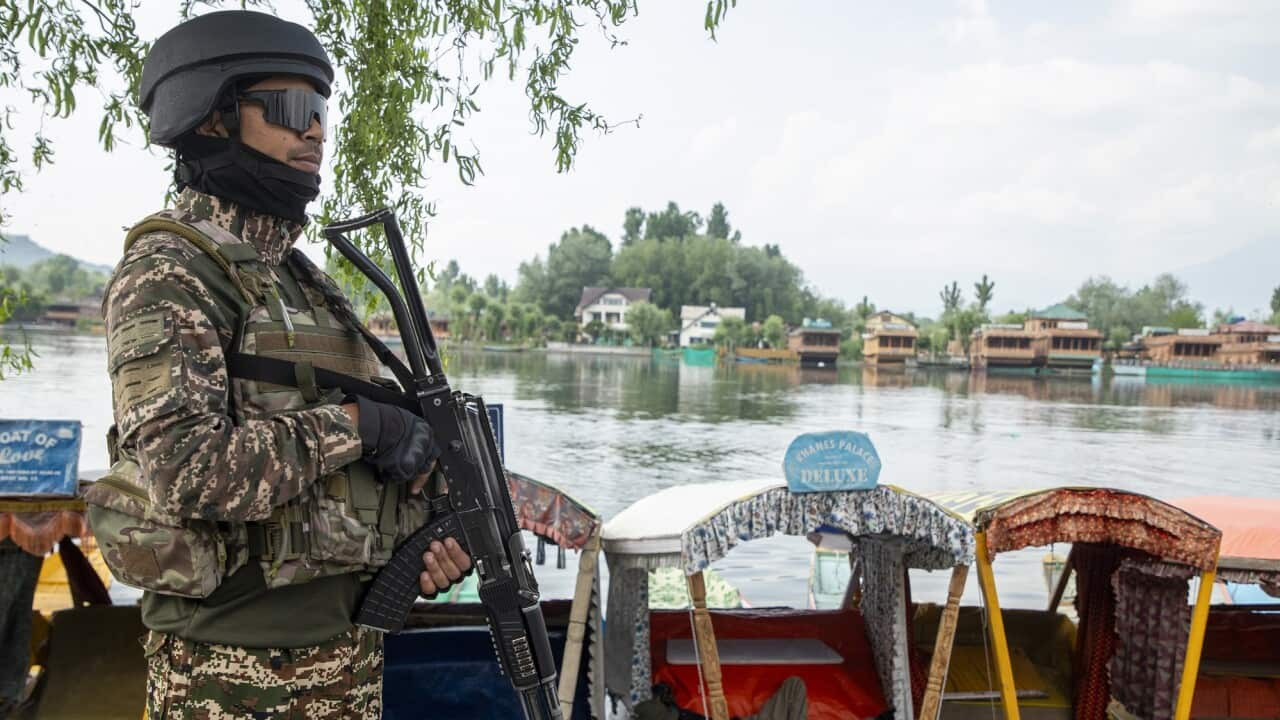TRANSCRIPT
Israel's Prime Minister, Benjamin Netanyahu, says there is no chance for a ceasefire in Gaza.
Mr Netanyahu says his forces will continue their operations in the enclave for the release of the Israeli hostages held by the military group Hamas and to annihilate the organisation.
He says he has heard the US request to minimise civilian harm in Gaza, but says Israel remains opposed to allowing fuel into Gaza.
"This morning, I met with the US Secretary of State, Anthony Blinken. I welcomed his message here. I welcomed that of President (Joe) Biden, and the American nation. I conveyed that we are proceeding with all our might, and Israel refuses any temporary ceasefire that does not include the return of our kidnapped hostages. Israel will not permit the transfer of fuel to the Gaza strip, and opposes the transfer of funding to Gaza."
It comes after a short visit by U-S Secretary of State Anthony Blinken to Israel, during which he conveyed the U-S's message to Israel for a temporary ceasefire to allow more aid to enter Gaza.
Mr Blinken also met with the Israeli President Isaac Herzog.
The U-S Secretary of State says he conveyed the US position that recognises Israel's right to respond to the October 7 attack, but also the need to reduce harm to civilians in Gaza.
"It is very important that when it comes to the protection of civilians who are caught in the crossfire of Hamas's making, that everything be done to protect them and to bring assistance to those who so desperately need it, who aren't in any way responsible for what happened on October 7. So we're working on all of that together, but we have a shared determination, and that determination will not wane."
Meanwhile, the leader of the Iranian-backed Hezbollah group delivered a televised speech for the first time since the start of the Israel-Hamas conflict.
The group shares a common goal with Hamas of weakening Israel.
Tit-for-tat attacks - using rockets, missiles and explosive-packed drones - have escalated on Israel’s northern border.
Sayyed Hassan Nasrallah did not announce an intention to enter the Gaza conflict, but says a further escalation on the Lebanese front, on Israel’s northern border, was a realistic possibility.
"What is happening on our fronts is very important and very impactful. It seems that some, who want Hezbollah to speedily enter a war with the enemy, may think that what is happening on the borders is conservative. However, if we look at what is happening on the borders, we will see it is very big and important and impactful."
Mr Netanyahu replied by giving a warning of his own.
"As relates to the North, I repeat, and say to our enemies, do not mistake us. A mistake will cost you dearly. A mistake will cost you something you cannot even imagine."
According to the health ministry in Gaza, the number of people who have lost their lives in the ongoing conflict has surpassed 10,000.
Among them are many journalists, with the Committee to Protect Journalists reporting that at least 36 of them are among those that have been killed since the conflict escalated on October 7.
They say the deadly toll has been accompanied by widespread harassment, detentions and other reporting obstructions in the Palestinian territories of Gaza, the West Bank, Israel, and beyond.
The latest journalist killed is Mohammed Abu Hatab of Palestine TV, who died along with 10 members of his family in South Gaza's Khan Younis region - with his colleague Salman Al-Bashir finding out live on air.
"We can't take it anymore. We are exhausted. We are victims. The only difference between us is the time of death. We are killed one after another. No protection for anyone or anything."
Israel Defense Forces spokesperson Daniel Hagari says there are two aspects to the offensive in Gaza: allowing some aid through, while using military assets to target Hamas.
In a news conference in Tel Aviv, he explained the south of Gaza is a safer area where Israeli forces are urging civilians to go.
"As I've said, we are focused on the war in Gaza, we are focused on dismantling Hamas. At the same time, we are allowing for a humanitarian effort led by the US and Egypt, we let the trucks through after we make sure they carry water, food, and medicine. Just today, we finished checking some and let them through.
"We also emphasised that this is happening south of Wadi Gaza, in the southern part of the strip. There are two Gazas now: the Gaza in the south we are bringing and concentrating everyone who came through, and allowing humanitarian aid. At the same time we are attacking there."
The federal government says it is doing everything within its power to ensure the safe return of even more Australians from the war-torn area.
Twenty-five Australians have so far been able to come through the Rafah crossing into Egypt, with Australian consular officials meeting them on the other side and organising accommodation and commercial flights home free of charge.
Australia's Foreign Minister, Penny Wong, called for the urgent provision of aid in Gaza as the situation deteriorates.
The UN's humanitarian affairs coordinator, Martin Griffiths, says talks are ongoing to bring more supplies in.
"I heard just this morning as I came in that there has been some progress on allowing some more fuel in through these negotiations. I hope to see that confirmed during today, but thank you, if that's the case. Fuel is essential for the functioning of institutions, of hospitals, of the distribution of water, of electricity...
"And I think here is my main point, as an aid worker - these negotiations must continue, but they are not enough. We must have those pauses. We must have those pauses. If we do not have pauses, we will not keep up with the needs of the people of Gaza and the Israelis also caught up in those areas of conflict."













